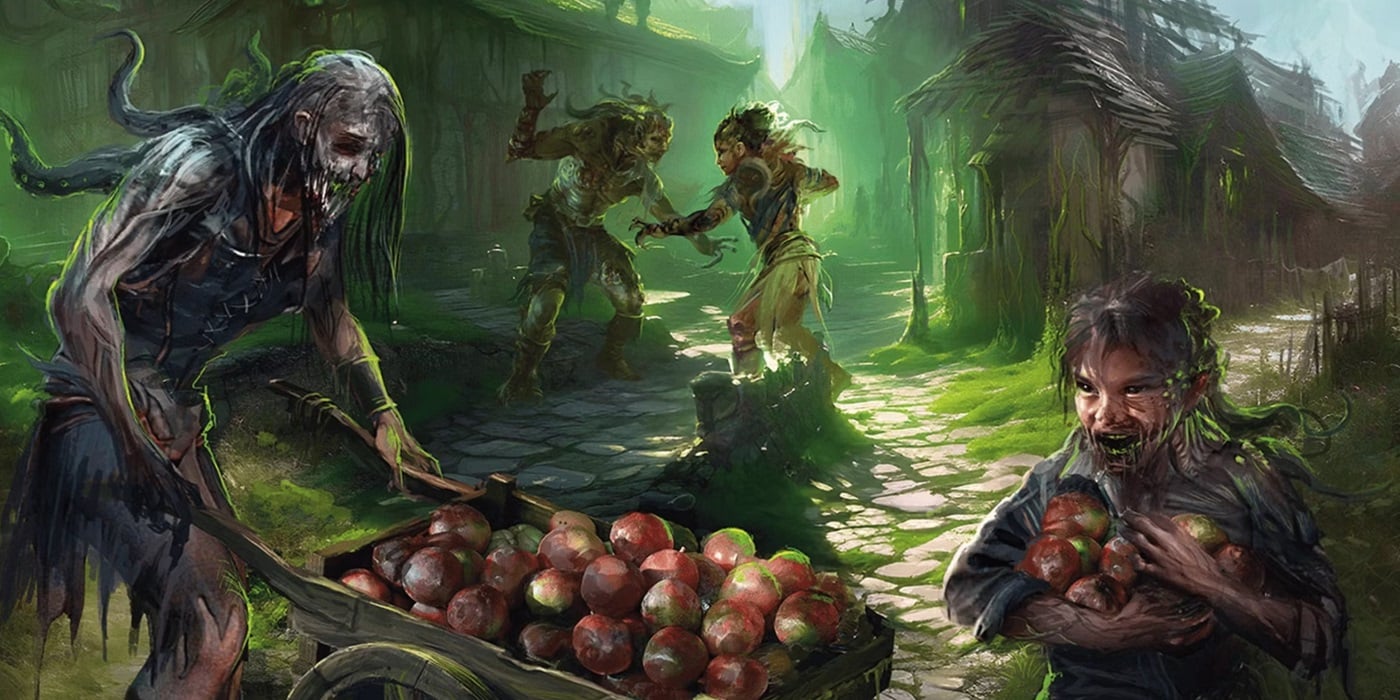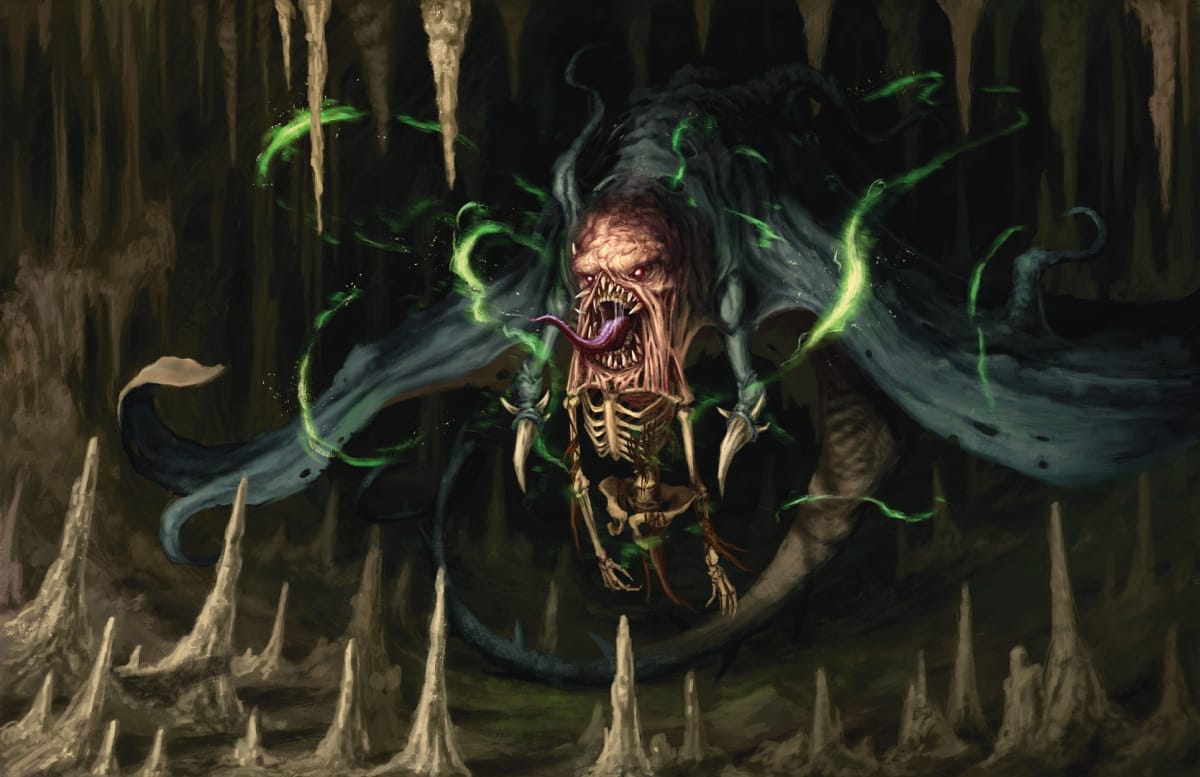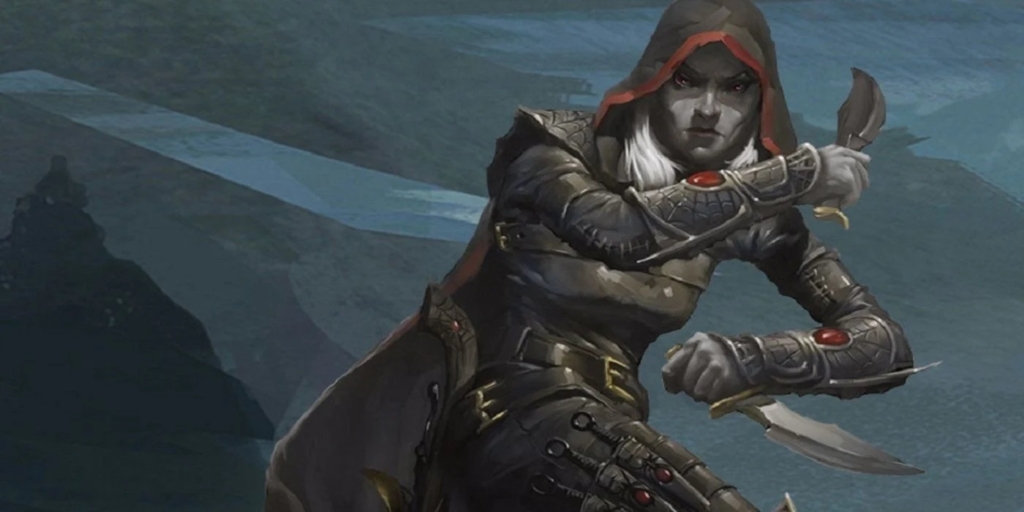D&D: ‘Phandelver and Beyond’ Will Make Your Character Eldritch

One of the themes in Phandelver and Below: The Shattered Obelisks is eldritch horror, and that includes a fair amount of body transformation.
What is it about eldritch things that makes people think about your body transforming? Maybe it’s because we’re all just bones living in a flesh prison (and you can think you’re a brain if you want, but your bones are where your blood gets made and will one hundred percent eat you if they get the chance, so). Maybe it’s because the ultimate horror is losing the self. And the body is a very close stand in for the self.
Which is why people are always getting extra eyes. Or tentacles. Or their whole body is becoming something different. Look, writing all of this out, it’s suddenly becoming even clearer why so many queer folks love horror.
So of course, that plays a role in Phandelver and Below, one of the better spooky/gribbly adventures WotC has put out.
So You Wanna Do a Body Horror – First Get Consent
And a big part of why WotC can take such big swings is that they’re approaching it with care. Instead of the usual route of corporate cowardice, where everything has to appeal as absolutely broadly as possible (which is absolutely a direction other adventures go), there’s a bit more of an edge here. And that edge comes with a nice little text box that talks about getting player consent.
On Page 12 of the adventure, there’s a box that reads:
Before you use the character transformation rules presented in this section, check with each player to determine if they are open to their character experiencing physically transformative effects. A player will not miss game benefits if they choose not to use these rules for their character.
And any time anything even close to the word consent gets brought up around gaming, there’s bound to be some screaming in the comments. So let’s quickly point out that even AD&D was talking about proto-safety concerns. In the DMG, the whole thesis statement for the book is that “the game comes first.” Even if that means not killing a character. In the words of Gygax:
Yet you do have the right to arbitrate the situation. You can rule that the player, instead of dying, is knocked unconscious, loses a limb, is blinded in one eye or invoke any reasonable severe penalty that still takes into account what the monster has done. It is very demoralizing to the players to lose a cared-for-player character when they have played well.
And taken in that light, Phandelver’s whole consent section is just seeing who’s “all in” on the eldritch horror. It’s about getting permission, really. And once you have it, you can be real gross and it’s great.
Eldritch Transformations in Phandelver and Below
One of the best mechanics in the book is the Character Transformation ruleset. It’s a perfect way to show, rather than tell, the horror that’s slowly settling on Phandelver. It’s broken up into different stages, each with differing mechanical effects. As you play through the adventure, your character may become twisted by the influence of the Far Realm, but even before you start growing tentacles, it gets weird.
At first, it’s just small stuff. Stage 1 of the transformation effects includes things like:
- The character awakens from nightmares to an audible, disturbing voice urging them and those around them to go to a particular place or perform a particular act
- The character and those around them hear whispers of bizarre conspiracies or nonsense
- They recognize disturbing words now and then in languages they otherwise don’t understand
- They start noticing patterns in everyday items and events
- The character discovers unfamiliar objects in familiar places
- The character occasionally hears an unfamiliar voice come from their throat when they try to speak
Later stages (there are four all in all) include growing bony protrusions, being regarded as friendly by Aberrations, or causing Far Realm objects to glow or hum or vibrate when nearby. And then at the ultimate stage, there’s some really creepy stuff:
Characters no longer cast shadows. Mirrors don’t show reflections. Limbs turn or rotate 180 or 360 degrees. Characters sprout tentacles that can pick up tiny objects!
It’s all in good fun. And honestly, you could probably go further if you’re really having fun with it. Especially since you’d know everyone involved is on board. Give them an extra set of tentacle limbs that have a bonus action slam attack. Or whatever. Get weird!
Because Phandelver certainly gets weird the more you play through it!






